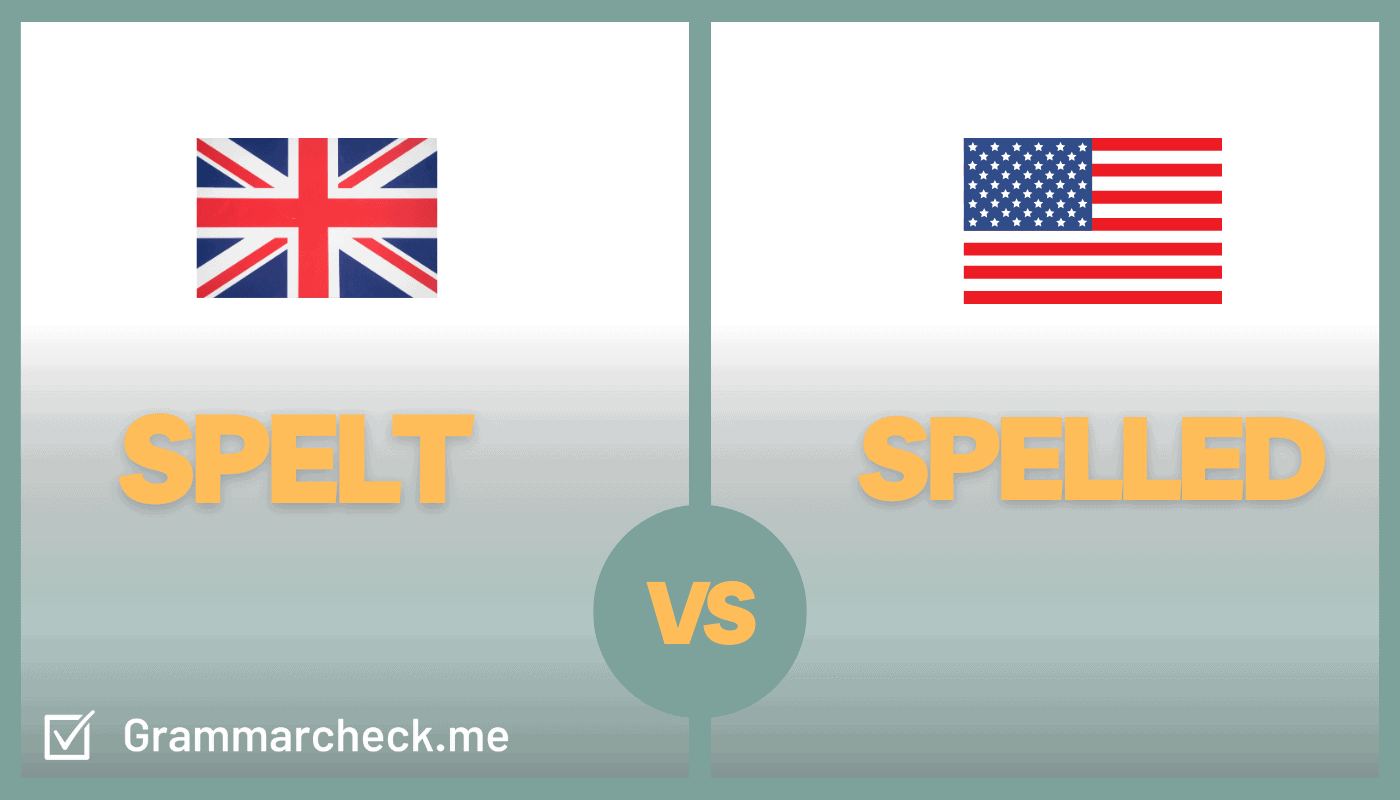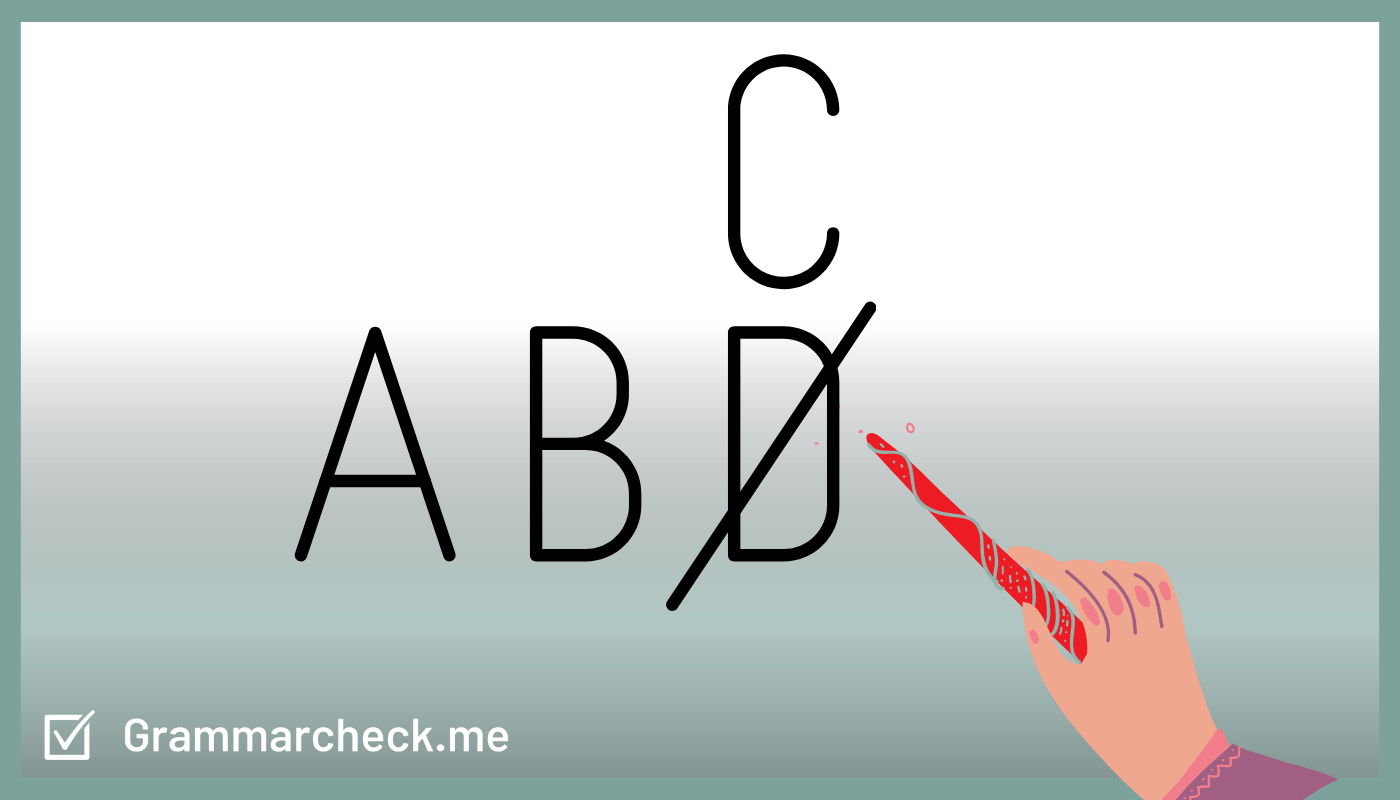What’s the difference between “spelt” vs “spelled”? Is one incorrect? Find out in this article.
English contains many words people need help figuring out the spelling and pronunciation for. One of the words that many people have trouble figuring out is the past tense of the word “spell.”
There’s some irony in confusion on whether it is “spelt” vs “spelled,” but it’s essential to know the difference between the two and when to use which in what context. Luckily, you’ve come to the right place to gain some clarification.
In this article, you’ll learn the difference between “spelt” vs “spelled” and how to use each variation of the word in your writing.
Spelt vs Spelled – What’s the Difference?

So what exactly is the difference between “spelt” vs “spelled”?
Takeaway: The short answer is that neither spelling of the word is entirely incorrect. However, the one that you would use primarily depends on your location.
The difference comes down to which side of the Atlantic you live. The UK is flexible in their spelling of the past tense of “spell,” so both “spelt” and “spelled” are acceptable spellings of the word. The same applies to other English-speaking areas of the world, such as Canada and Australia.
However, the United States is a little stricter with which spelling they prefer. Generally, you’ll see the word “spelled” more often than “spelt.” In fact, “spelt” is widely not accepted as a way to spell the word. It’s not that using “spelt” will be unrecognizable to anyone in the US, but it doesn’t align with the country’s traditional grammar and vocabulary rules.
So in most contexts, you can use any spelling of the word. However, in the US, you should only use “spelled.”
Spelt vs Spelled Meaning

Now that you know whether it’s “spelt” or “spelled,” it’s a good idea to also discuss the meaning of the word.
“Spelt” and “spelled” are both past tenses of the word “spell.” The word “spell” in this context means to write or say the order of letters of a word correctly. There’s another meaning to the word “spell,” where it refers to an incantation, such as in “casting a spell.”
However, if you use the word with that meaning, it will always be a noun, and the “spelt” vs “spelled” debate does not apply. And just as we learned in our post comparing the words inactivation & deactivation, even small spelling changes can change the meaning of a word!
The word “spell” is unique in that it’s both an irregular verb, meaning it doesn’t follow the traditional rules for conjugation, and a regular verb. This is illustrated through the spelling of the past tense of the word as “spelled” and “spelt.”
“Spelled” is the regular form of the past tense of “spell.” It follows the traditional rule that to turn a verb into its past tense form, you must simply add an -ed to the end. Meanwhile, “spelt” also exists and ignores that rule entirely – a common occurrence in English. Just like we saw in our post about what is a mansion, we saw how word choice & spelling can totally change the meaning of a word!
Spelled vs Spelt Examples
Now that you know the meaning of the word “spell” and how to conjugate it in the past tense, let’s illustrate with examples of “spelled” vs “spelt” in context and how both words can work the same in similar sentences.
- She spelled the word “Wednesday” wrong, but that’s a common mistake.
- She spelt the word “Wednesday” wrong, but that’s a common mistake.
In the example above, “spelt” and “spelled” both work in the sentence, and the rest of the sentence makes it difficult to distinguish whether it’s written in US or UK English.
However, in the following sentence, there are additional cues based on the spelling of other words:
- He spelt the word “fuschia” correctly because it’s his favourite colour.
- He spelled the word “fuschia” correctly because it’s his favorite color.
In the sentences above, “favorite” and “color” are each spelled differently. In UK English, these words are spelled with a “u.” However, in US English, there is no additional “u” in either word.
This indicates whether to use “spelt” or “spelled,” especially in the second US English sentence. Just like we saw in our analysis of the words programing or programming, even small spelling mistakes can make a big difference!
Misspelt vs Misspelled
The words “misspelt” and “misspelled” mean to spell something incorrectly and are the past tense form of the verb “misspell.”
Since the root word of “misspell” is “spell,” the same rules apply, including whether to use “misspelt” vs “misspelled,” with the former seldom being used in the US and both forms being acceptable in other areas around the world.
Here are examples of the word used in a sentence:
- My name was misspelt on my passport, so I had to get a new one.
- My name was misspelled on my passport, so I had to get a new one.
Frequently Asked Questions
Both can be used correctly in your writing. However, in the United States you should use spelled instead of spelt!
In British English, spelt came first. Spelt was historically the correct spelling.
This means that a word has the correct spelling. You might say, “I lost 1 point on my vocabulary quiz because my answer was not spelt correctly.”
Final Thoughts
To recap, when it comes to whether to use “spelt” vs “spelled,” the rules are luckily not too complicated.
The main rule you should remember is to use “spelled” when writing in US English. Otherwise, you can use “spelled” or “spelt” in other circumstances.
However, it’s also important to note that depending on who you’re writing to or why, you may have to subscribe to specific rules or spell things a certain way. Always check whether you’re using US English or another variation of English to ensure that you’re adhering to the rules that you’re supposed to.
If you want to avoid “misspelling” words in your writing, consider using the Grammarly tool as the second set of eyes for your work.
